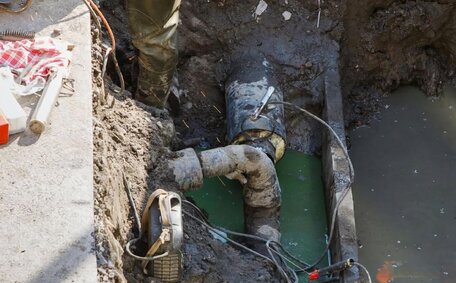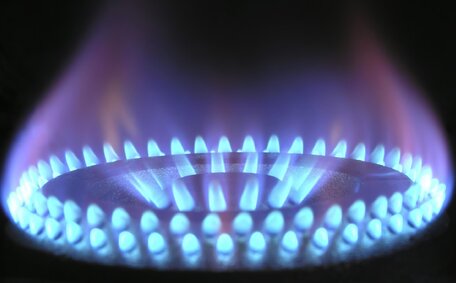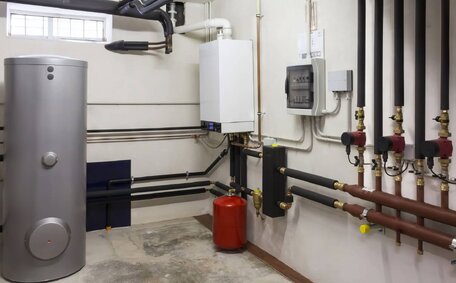
Sump Pump Failure Solutions
Sump pumps fail due to power outages, clogs, frozen pipes, and more. Prevent water damage by understanding causes and contacting plumbers for solutions to extend pump life.
Read MoreEquipping your Cronulla home with the right tools can be a game-changer when confronting common plumbing problems. A well-stocked toolkit empowers you to manage minor repairs yourself, potentially saving on emergency service expenses and subsequent water damage.
Cronulla homeowners should keep a toolkit stocked with essentials such as a plunger, adjustable wrench, pipe wrench, basin wrench, and a drain snake. Recognizing when to call a licensed plumber is crucial, as major pipe bursts, gas leaks, or re-piping jobs demand expert knowledge.
From clearing blocked drains to halting minor leaks and detaching pipes, these fundamental DIY tools enable you to address a variety of plumbing concerns.
Continue for advice on why these tools are essential and how to use them during a plumbing emergency or for routine maintenance.
Stocking these essential tools ensures homeowners are ready to independently resolve many plumbing issues, whether it’s fixing leaks, managing burst pipes, or unclogging drains and toilets.
The adjustable wrench is a toolbox mainstay, crucial for controlling tension on pipe joints and fittings. Conversely, pipe wrenches remove sizeable compression nuts, particularly on galvanised pipes, while basin wrenches are tailored to detach nuts on sinks and toilets effortlessly.
However, there are certain tools that require expert handling - like high-powered drain and sewer augers for complex plumbing tasks. For any plumbing issues or re-piping jobs, don’t hesitate to call your local licenced Sydney plumber to avoid further home water damage or other dangers.
Having the correct type of plunger is pivotal when addressing a clogged sink or toilet. The two main options homeowners should have on hand are flange plungers, which provide a better seal for toilets, and cup plungers, ensuring effective unclogging solutions.
Plastic handles provide a comfortable grip for your hands, akin to using a reliable pair pliers. It’s useful to have one of each plunger type on hand.
Wrenches are indispensable tools for myriad plumbing tasks, with selections like needle-nose pliers making precision work simpler.
Pipe wrenches grip rounded surfaces without slipping and provide superior torque for turning larger pipe fittings and valves. The curved jaws evenly grip pipes up to 2 inches in diameter. Always pull the wrench towards you to avoid damaging your pipes.
Basin wrenches are designed to reach mounting nuts securing sinks and toilets that would otherwise only be accessible by removing the fixture. The offset jaws provide the ideal angle.
Choosing the correct wrench depends on the fixture or component in question. Proper wrench use is vital to prevent damage to pipes and valves. If in doubt about the necessary tool, seek advice from a licenced Sydney plumber to sidestep potential issues.
Hand augers and drain snakes with their flexible design are adept at clearing blockages too deep for basic plunging. A hand auger, designed to navigate pipe curves, has a curled metal cable that latches onto clogs, enabling the extraction of debris like hair and grease.
Using a hand auger demands a strategic approach and patience, yet it can spare the expense of professional drain clearing services.
Plumber’s tape and putty are affordable solutions that can help prevent leaks around pipe connections. Using these correctly seals threaded fittings and fixtures to stop water seepage.
Applying plumber’s tape (also called Teflon tape) prevents leaks by creating tighter seals between threaded pipes and connectors. To use:
Sealing with plumber’s putty waterproofs connections between drain bottoms and sink basins. Follow these steps:
Used properly, plumber’s tape and putty form watertight barriers that prevent leaks around joins. This saves homeowners costly water damage repairs.
Accurate pipe cutting is a critical process during plumbing modifications or repairs, with the right tools key to avoiding damage that can precipitate leaks or part malfunctions.
A hacksaw with a sharp metal blade is preferred for cutting pipes. Measure and mark your metal or plastic pipes before cutting to guarantee accurate cuts. Secure pipes with locking pliers before sawing to prevent unwanted movement.
Equally important is preventing future plumbing issues through regular maintenance:
Proper pipe cutting technique and regular maintenance routines keep your plumbing systems running smoothly for years while avoiding costly disasters.
Understanding the extent of your DIY plumbing capabilities is crucial. Possessing the appropriate tools and basic knowledge enables handling of minor repairs, yet some issues necessitate professional intervention.
Non-professional efforts to tackle substantial plumbing repairs may result in home damage and serious hazards such as electric shocks and gas leaks. Professional plumbers are equipped with high-tech tools, knowledge of codes, and expertise to safely execute complex tasks.
When need arises, don’t hesitate to call our 24/7 plumbing service if you encounter major systemic issues, or even just want advice. Ensuring problems get professional attention protects your home, health and avoids code violations.
In the event of a plumbing disaster, obtaining quick assistance is crucial to preventing significant home damage. As an established Cronulla plumbing service with over 10 years of experience specialising in emergency repairs, blocked drains, and all residential and commercial plumbing needs, Cronulla Plumbing is always here to assist.
If you encounter flooding, pipe bursts, gas leaks, sewer line breaks or any urgent issue, call our 24/7 emergency hotline immediately at 1300 349 338. Our licenced technicians, armed with the most important tools and expertise, are standing by year-round to respond to plumbing emergencies and despatch fully-equipped service vehicles promptly.
We also provide scheduled maintenance and installation services to get your home back in top shape. Feel free to email any general inquiries to jobs@cronullaplumbingservice.com.au or call 1300 349 338 to book appointments for drain cleaning, water heater repairs, fixture upgrades and more.
Don’t let plumbing headaches spiral into costly disasters - trust Cronulla Plumbing’s capable technicians to handle all residential and commercial plumbing emergencies and maintenance needs for your home business and other Cronulla properties.
Sump pumps fail due to power outages, clogs, frozen pipes, and more. Prevent water damage by understanding causes and contacting plumbers for solutions to extend pump life.
Read MoreIf your monthly gas bill rises suddenly for no clear reason, the cause could be a gas leak from old pipes or appliances. Contact your provider to investigate.
Read MoreScale buildup reduces the efficiency of hot water systems over time. Regular descaling helps remove this. Flush your system with vinegar or a descaling solution.
Read MoreCronulla, 2230 NSW
We will call back as soon as possible.




